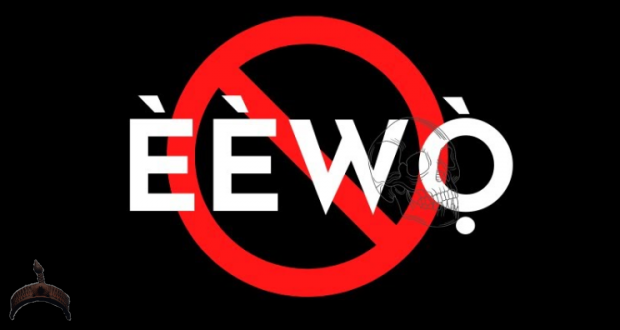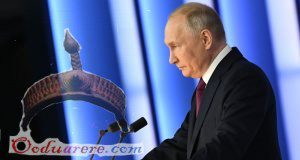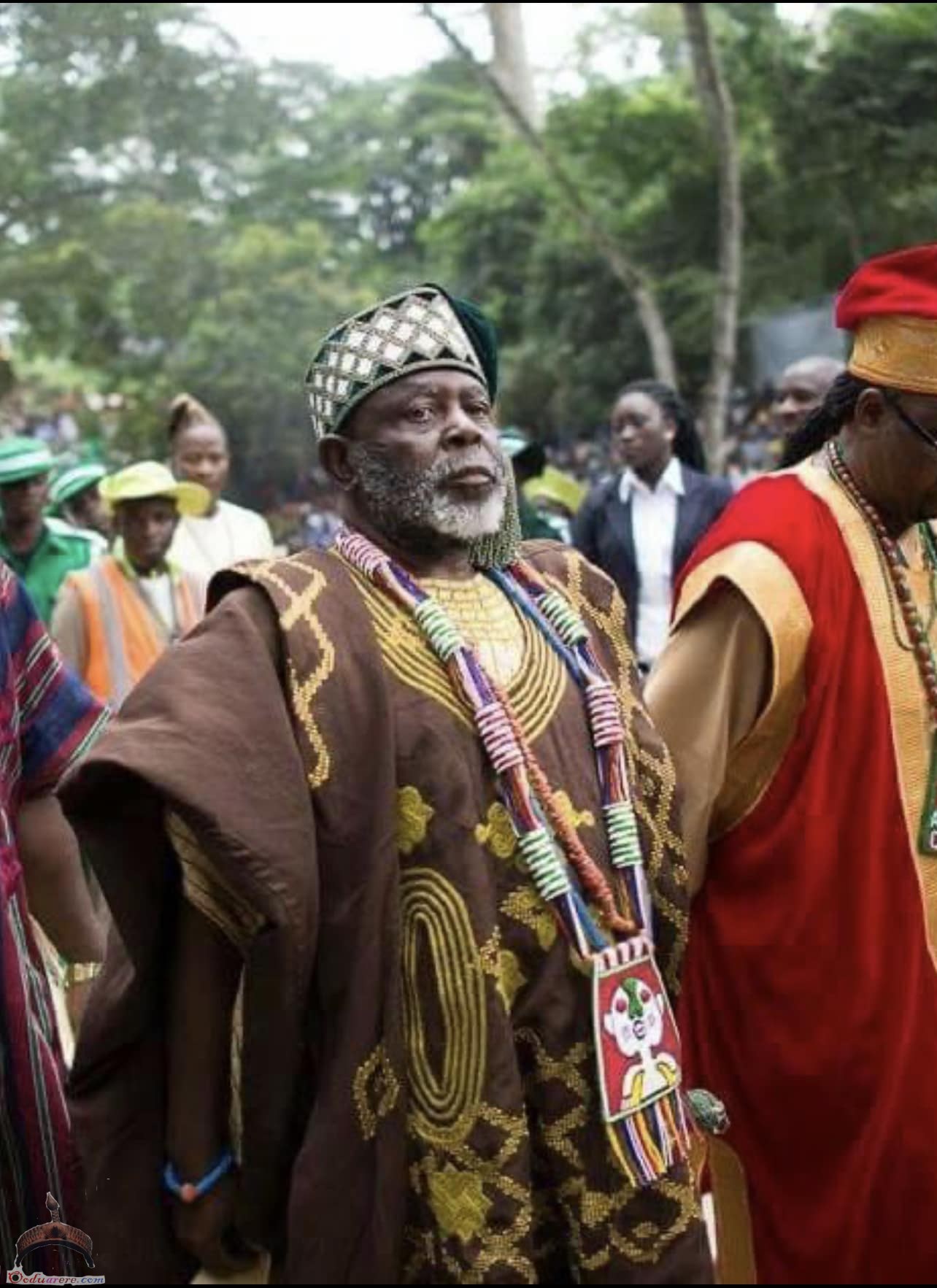The concept of taboo can’t be over-emphasized as far as our Isese community is concerned. The concept of taboo is as old as man, because, during the creation of the earth, Elédùmarè instructed Ọbàtálá to be in charge of creation [Odù: Ọ̀ṣá Òfún], likewise, other tasks were been given to other Irúnmọlẹ̀s such as Ọ̀rúnmìlà Baraà mi Àgbọnnìrègún; the witness of human destiny, and one who can change the bad luck to good luck.
Elédùmarè is the creator of everything in the whole universe, including from living things that range from plants to animals and as well as the non-living components that support life of living components such as the air we breathe in and out, water for domestic and other uses, sunlight that supports photosynthesis, where green plants manufactured their own complex organic food substances – whereas animals in their kingdom depend on plants for survival because its serves as the producer of energy and while animals in the kingdom are consumers of the energy. Soil is among the non-living components that provide surface and nutrients for the plant to grows, and lastly the home for every living soul.
In Odù-Ifá ‘’Ọ̀yẹ̀kú – Ọ̀ṣẹ́’’, Elédùmarè sent for Ikú [death spirit], Ọ̀rúnmìlà, and Èèwọ̀ [spirit that controls taboos] to go and govern the entire universe.
Elédùmarè applied the concept of division of labour so that there will be smooth running of the earth surface as thus: Ikú will be taken one’s life; every individual is born to die. The principle of extinction says that ’’without sickness, disease or accident” every individual will surely die at a point in time. At this point, Ikú will discharge its own duty and obligation as to take one’s life.
Èèwọ̀ is the one in charge of an implicit prohibition on certain things on a spiritual basis that’s excessively repulsive or perhaps, too sacred for the ordinary soul.
Ọ̀rúnmìlà Baraà mi Àgbọnnìrègún as a Divinity and the messenger of Elédùmarè who uses Ifá, the voice of Elédùmarè for the guidance of humankind. And Ifá as the witness of human destiny, that’s there when everyone is choosing and saying all that is likely going to affect their living, and every solution to them when getting to the universe, and no one can remember what his/her destiny was, except when they consult Ifá.
Ifá will now take them back to the journey of life by telling them all that they don’t know but that is very peculiar to their destinies, and Ọ̀rúnmìlà will state taboos for them ranging from the type of foods appropriate for good health, appropriate behaviors, kind
of clothes and colors, etc.
Anyone who can agree with his/her taboo, will surely live long with sound health but anyone who failed to concur with his/her taboo is doing his/her self more harm than good, meaning that they are inviting death spirit to come after them. At this point, Ikú will definitely discharge its duties.
On the other hands, Ikú serves as a control measure for population control, because, if the principle of extinction is not put into practice, overpopulation will naturally lead to the number of individuals being more than available resources and promote ugly competition that will result in many negative occurrences, such as cannibalism, predation, etc.
Taboo is an implicit prohibition on certain things (usually against eating, drinking, and the usage of certain things, or behaviour) on a spiritual basis that it is excessively repulsive or perhaps, too sacred for the ordinary soul. And such prohibitions are present in virtually all spiritualities.
Taboos are often meant to protect individuals, but there are numerous other reasons for their existence.
Taboos can be categorized into two: Behavioural Taboo and Food/Drinking Taboo
Behavioral Taboo:
This refers to a taboo in activities or behaviour that is forbidden, prohibited or otherwise outside of what is spiritually good to an individual or group of people. acceptable in society. Taboos may be grounded in morality, and can also be linked to a culture or religion – An act may be taboo in one culture and not in another. An example is where an individual is not permitted to or is restricted from wearing black clothing.
Food/Drinking Taboo:
These are food substances that are either liquid, semi-solid or solid and also alcoholic and nonalcoholic drinks that are not appropriate for consumption by one individual. E.g an individual may not be permitted to eat fish of all species.
In our Spiritual world, we have the following types of taboos:
1). Personal taboo: This is restricted to a single individual, and it encompasses the ability of an individual to obey the instructions in accordance with what their ‘Orí’ want, e.g individual may not be permitted to eat fish while someone else may be restricted from wearing black clothes.
2). Organizational taboo: This refers to the code of conduct of a group of people. It spelled out the do and don’t and every attitude that is required to be followed in an Association or organization, E.g, in Ògbóni Society, one is expected to be loyal and committed (any form of the traitorous act is not permitted), and if not, one would not enjoy his or her entitlements as a member.
3). Family taboo: This is only associated with the group of people who are closely related by blood or by marriage. If one is not a member of the family, one does not have to observe the taboo. E.g Oníkòyí family don’t eat Òkété [BIG rat].
4). Communal /cultural taboo: These types of taboos are associated with the people within a geographical location who share common beliefs, cultural values, and traditions. The taboos are in accordance with the norms, traditions, customs, and cultures of the land. E.g, Òṣogbo people don’t drink guinea-corn; because of Ọ̀sun.
5). Religious Taboo: It is usually certain things in our religion that are forbidden. In Ìṣẹ̀ṣe – Yorùbá Indigenous Religion (YIR), the Ọbàtálá (Òrìṣà Ńlá) priests and priestesses are not permitted to drink palm wine and Ọya priests and priestesses don’t eat ram and sheep, etc.
Conclusively, the concept of taboo has great significance in both human and environmental developments.
Cc: Babalorisa sangofemi Ibuowo
 Ọmọ Oòduà Naija Gist | News From Nigeria | Entertainment gist Nigeria|Networking|News.. Visit for Nigeria breaking news , Nigerian Movies , Naija music , Jobs In Nigeria , Naija News , Nollywood, Gist and more
Ọmọ Oòduà Naija Gist | News From Nigeria | Entertainment gist Nigeria|Networking|News.. Visit for Nigeria breaking news , Nigerian Movies , Naija music , Jobs In Nigeria , Naija News , Nollywood, Gist and more









